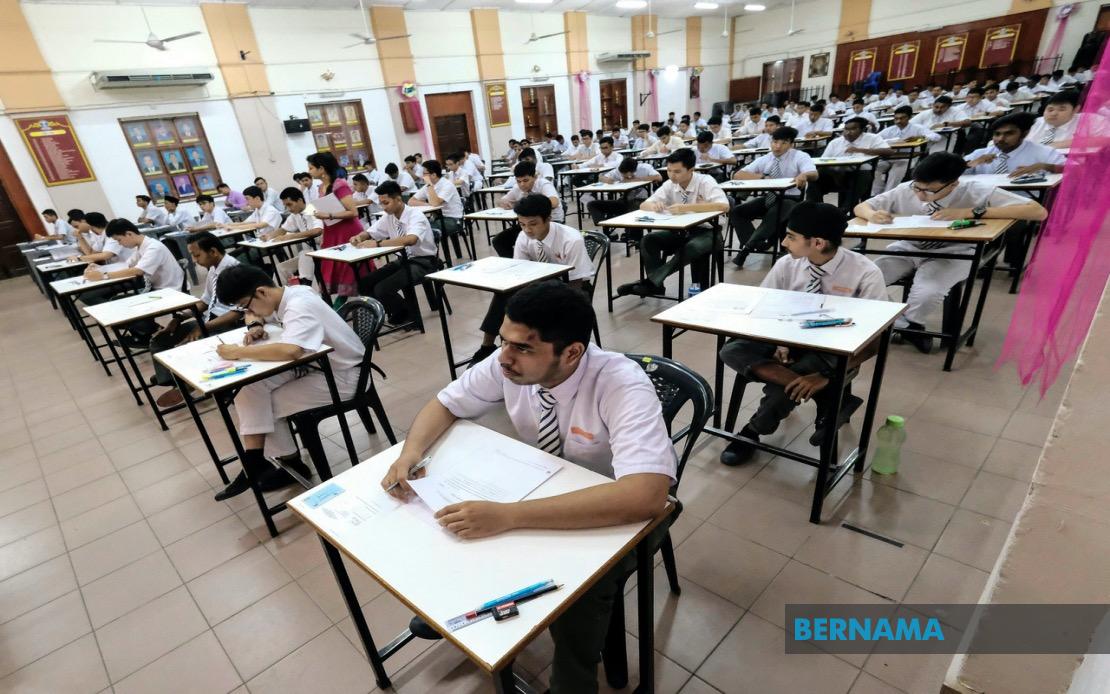
The Education Ministry should consider introducing a transition period for students when they return to school once the MCO is lifted, academics have suggested. – Bernama file photo
KUALA LUMPUR (Feb 2): The Education Ministry should consider introducing a transition period for students when they return to school once the movement control order (MCO) is lifted, academics have suggested.
This period will give students time to pace themselves and get used to the physical learning environment while rebuilding their motivation and confidence.
Wawasan Open University’s School of Education, Humanities and Social Sciences lecturer Por Fei Ping said the transition programme should be carefully planned before schools reopen.
“The curriculum could be more relaxed. At the same time, it should re-orient students to be more prepared for learning tasks and realign them to the learning outcomes required,” she said.
Universiti Teknologi Mara Melaka branch’s head of Health Communication Research Group Abdul Rauf Ridzuan concurred with Por and suggested a recovery period for primary and secondary students.
“Most likely, students who are unable to follow online learning effectively will be left behind,” he said.
He stressed that teachers must give more attention to this group of students, particularly those from the B40 and rural areas, in terms of emotion and learning.
Por recommended that a longer transition programme for those who have been unable to follow online learning in the past year.
“They need to be specially coached so that they can catch up with what they have lost in the past one year,” she said.
An impact that could last a lifetime
Por suggested that stakeholders start planning, designing and developing the curriculum for the transition programme now before implementing it to ensure its effectiveness.
She warned that learning gaps will widen if students are not prepared to reorient themselves to the curriculum required.
“There may also be a higher dropout rate as students lose confidence in their studies,” she said.
Both Por and Abdul Rauf believe that the impact of the MCO and Covid-19 pandemic on students could lead to a less-than-stellar academic performance.
They both theorise that it could also affect their competency and performance as future employees.
“We also need to be prepared to accept the fact that the effects of what has happened will affect and change society in the future for better or worse,” Abdul Rauf said.
Joining the dots
Meanwhile, academics from International Islamic University Malaysia (IIUM) and Universiti Tunku Abdul Rahman (UTAR) said there should be flexibility in adopting new ways of learning.
UTAR’s Centre for Curriculum Development and Innovation Deputy Head Asst Prof Ngeow Yeok Meng said the pandemic and subsequent lockdowns are learning experiences in themselves that teachers could use as part of the education experience.
“We can make good use of what we’ve been through and make it relevant to what the students are learning in school,” she said.
For example, she said teachers could talk about the spread of the virus and link it to biology and science.
She also suggested that students be encouraged to engage in the intellectual sharing of personal experiences during the pandemic for the sake of their mental and emotional wellbeing.
“We shouldn’t just focus on academic performance. Mental health and emotional balance are equally important. They are the base for any form of education,” she said.
She added that it is also a way of preparing students both mentally and emotionally ahead of their return to school where they must learn to reconnect with friends in person once more.
Leave no one behind
IIUM’s counsellor Haniza Rais said the time is ripe for educators to redefine education as they explore new ways of teaching.
They both felt that transition classes should only be introduced for students who are struggling to catch up rather than for all.
Students should be monitored and those who fall behind should be placed in remedial classes for extra coaching, they added.
Haniza proposed that online classes be recorded and uploaded to an online learning platform that is accessible to students round the clock.
“If recorded classes in modular form are available 24/7 and perhaps downloadable, it allows students to view them at their own pace,” she said.
Haniza said in some cases, parents have limited resources with several children sharing the same gadget so they cannot attend classes that are conducted concurrently. – Malay Mail
The post Academics: Remedial action needed to address cost of lost schooling for students in Malaysia appeared first on Borneo Post Online.
from Borneo Post Online https://bit.ly/3rdYsn3
via IFTTT

No comments:
Post a Comment